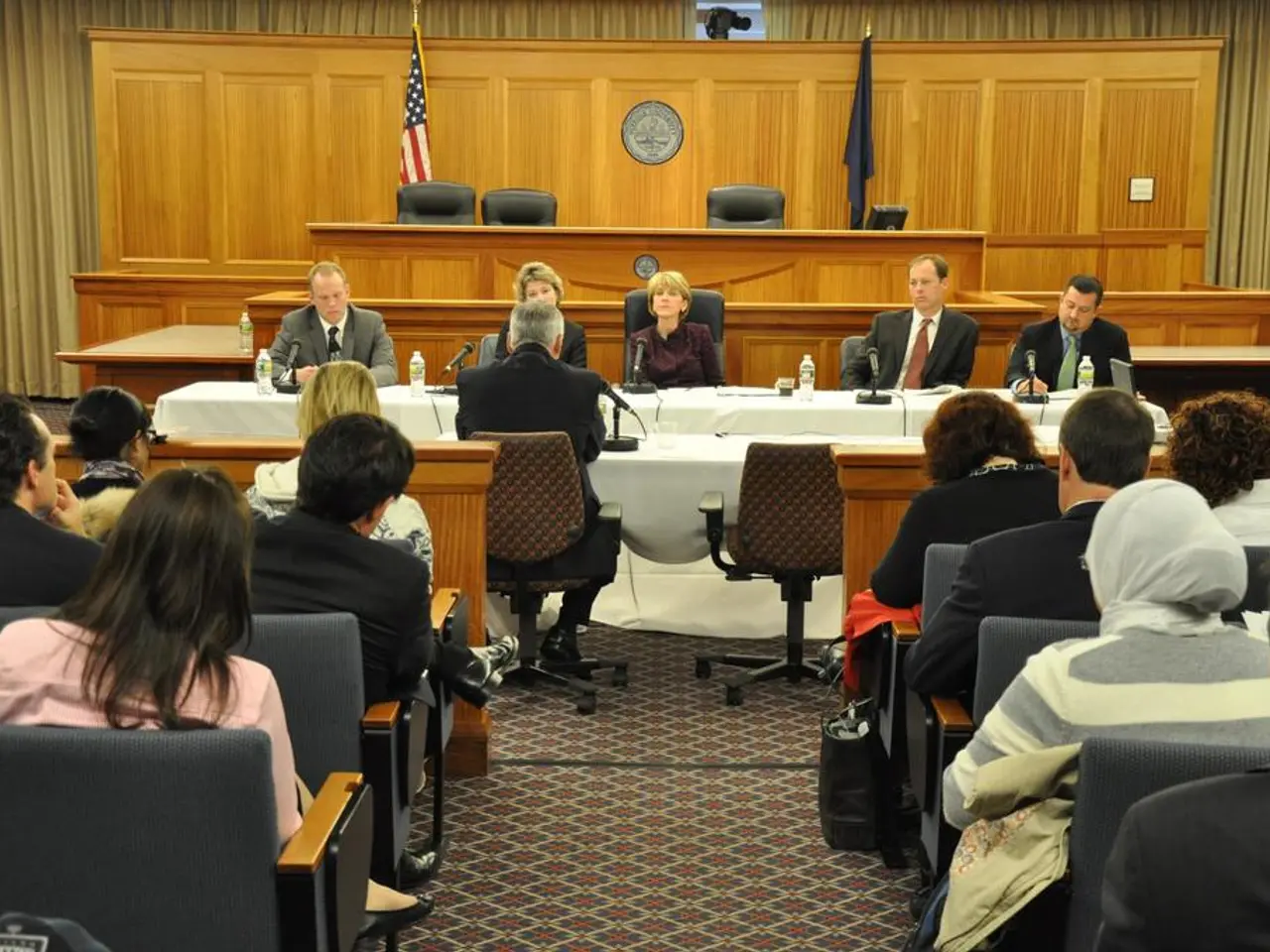A White House statement announces forthcoming peace agreement between Azerbaijan and Armenia
The Trump Route for International Peace and Prosperity was officially signed at a White House peace summit in August 2025, marking a significant step towards regional connectivity and economic cooperation in the South Caucasus. The agreement establishes a major transit corridor, also known as the Zangezur corridor, linking Azerbaijan, Turkey, and the Caspian Sea region.
The corridor, which will be known by the acronym Tripp, will physically connect mainland Azerbaijan with its Nakhchivan exclave by passing through a 43-kilometer stretch of Armenia's southern Syunik province. This development satisfies a long-standing demand for Azerbaijan to connect its territories without passing through Armenia, lifting a major block in peace negotiations.
However, the agreement has implications for Armenia, Azerbaijan, and the broader South Caucasus region. For Armenia, the agreement requires allowing transit through its sovereign territory while officially respecting its sovereignty and territorial integrity. There are concerns that this may erode Armenian control over Syunik and create geopolitical vulnerabilities, as it involves ceding some level of access and control to a U.S.-supervised route.
For Azerbaijan, the corridor is intended to foster peace and economic cooperation by reopening key transportation and trade links that had been closed due to decades of conflict. It aims to unlock economic potential and serve as a strategic gateway connecting Turkey, Azerbaijan, and Central Asia.
The peace deal is expected to send a powerful signal to the entire region, as stated by senior administration officials. It is also viewed as a major setback for Russia and Iran, traditional regional powers whose influence is challenged by the U.S. assuming security and control over the route. This is seen as diminishing Russia's role in the South Caucasus and introducing stronger U.S. influence, potentially including a military presence in Armenia, which Russia regards as a "stab in the back."
At least nine companies have been in touch in recent days to discuss possible investments in the Tripp, indicating a promising future for economic growth and development in the region. The White House announced that Azerbaijan and Armenia were due to sign an initial peace agreement on Friday, with Mr. Trump set to sign separate deals with both countries on energy, technology, economic cooperation, border security, infrastructure, and trade.
Despite the promising developments, the peace deal’s long-term success is uncertain, as it depends on difficult political and constitutional concessions from Armenia, and the entrenched ethnic and territorial conflicts dating back decades remain sensitive and unresolved in full terms.
Sources: 1. BBC News 2. CNN 3. The Washington Post 4. The New York Times 5. The Guardian
- The Tripp corridor, a result of the Trump Route for International Peace and Prosperity, is a subject of intense political discussions and general news, given its potential implications for Armenia and Azerbaijan, as well as the broader South Caucasus region.
- Alongside the peace negotiations, the Tripp corridor is also generating significant interest in the realm of war-and-conflicts, economics, and politics, as various companies are expressing a keen interest in potential investments, indicating a potentially transformative impact on the region's economic growth and development.






